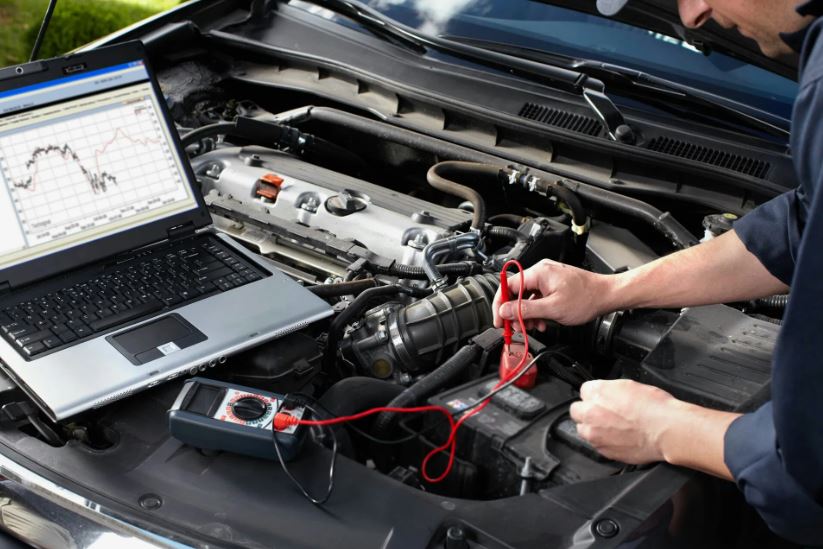In the evolving world of automotive maintenance, car diagnostics has emerged as a crucial component of modern vehicle servicing. Gone are the days when mechanics relied solely on intuition and basic tools to detect car issues. Today, advanced diagnostic systems help technicians identify problems with precision, improving efficiency, safety, and overall performance. Whether you own a brand-new car or an older model, understanding the role of diagnostics can save you time, money, and future headaches.
As vehicles become more complex, with integrated computers and electronic control units (ECUs), diagnostic tools have become essential in deciphering what’s happening beneath the hood. For drivers considering options like top cash for unwanted cars Brisbane, knowing the diagnostic condition of their vehicle can also influence its resale or scrap value.
Understanding Car Diagnostics
Car diagnostics involves using specialized tools to scan a vehicle’s systems and retrieve error codes. These tools connect to the car’s onboard diagnostics (OBD) system, usually through an OBD-II port located under the dashboard. Once connected, the diagnostic scanner reads codes generated by the car’s computer, highlighting potential issues such as engine misfires, emissions failures, transmission faults, or sensor malfunctions.
While the codes themselves don’t always provide a complete answer, they offer technicians a solid starting point for targeted inspection and repair.
Why Diagnostics Matter More Than Ever
With the integration of technology into almost every aspect of vehicle operation—engine control, braking systems, climate management, and even advanced driver assistance systems (ADAS)—the margin for error in manual inspections has shrunk. Diagnostic tools bridge this gap by providing:
- Accuracy: Pinpointing the exact source of a problem reduces guesswork and unnecessary part replacements.
- Time Efficiency: A quick scan can reveal multiple issues simultaneously, helping technicians work faster.
- Cost-Effectiveness: Early detection often means cheaper repairs and avoiding catastrophic failures down the line.
- Informed Decisions: For owners looking to sell or dispose of their vehicle, diagnostics give insight into the car’s condition and potential repair costs.
How Diagnostics Contribute to Preventive Maintenance
Routine diagnostic checks are not only helpful when something goes wrong—they’re invaluable for preventive maintenance. By analyzing system data, diagnostics can highlight components that are wearing out or not performing optimally. For example, if the oxygen sensor is degrading, the system can warn the driver before it begins to affect fuel efficiency or emissions levels.
This proactive approach helps extend the vehicle’s life and ensures optimal performance on the road.
Diagnostic Tools Used in Today’s Workshops
Modern auto workshops rely on a range of diagnostic tools, including:
- OBD-II Scanners: Read fault codes and provide live data from sensors.
- Multimeters: Measure voltage, current, and resistance in electrical systems.
- Oscilloscopes: Visualize electrical waveforms to troubleshoot complex issues.
- Dealer-Level Software: Often brand-specific tools used by dealerships for deeper system analysis.
These tools often work in tandem with technician expertise, combining human insight with digital precision.
The Connection Between Diagnostics and Emission Standards
Government regulations around vehicle emissions have grown stricter in recent years. Diagnostic systems play a key role in ensuring compliance. Many vehicles are now equipped with systems that alert owners when emissions controls fail—such as catalytic converter issues or fuel vapor leaks.
Timely detection through diagnostics helps ensure vehicles stay road-legal and environmentally friendly, avoiding fines or failed inspection tests.
What This Means for Used or Unwanted Cars
If you’re thinking about parting ways with an older vehicle, a diagnostic report can clarify its mechanical state. Services offering cash for unwanted cars in Ipswich may consider diagnostic results when evaluating your car’s value. A clean diagnostic record can sometimes increase your payout, while critical issues may indicate it’s more cost-effective to sell or recycle the vehicle.
Final Thoughts
Car diagnostics have transformed modern vehicle servicing from a reactive process into a proactive, data-driven approach. They empower technicians to make informed decisions, allow vehicle owners to understand their cars better, and support compliance with environmental regulations. In an age where precision and efficiency matter more than ever, diagnostics are not just a tool—they’re a necessity.
Whether you’re planning routine maintenance or considering selling an old car, understanding the role of diagnostics ensures you stay informed and in control.



